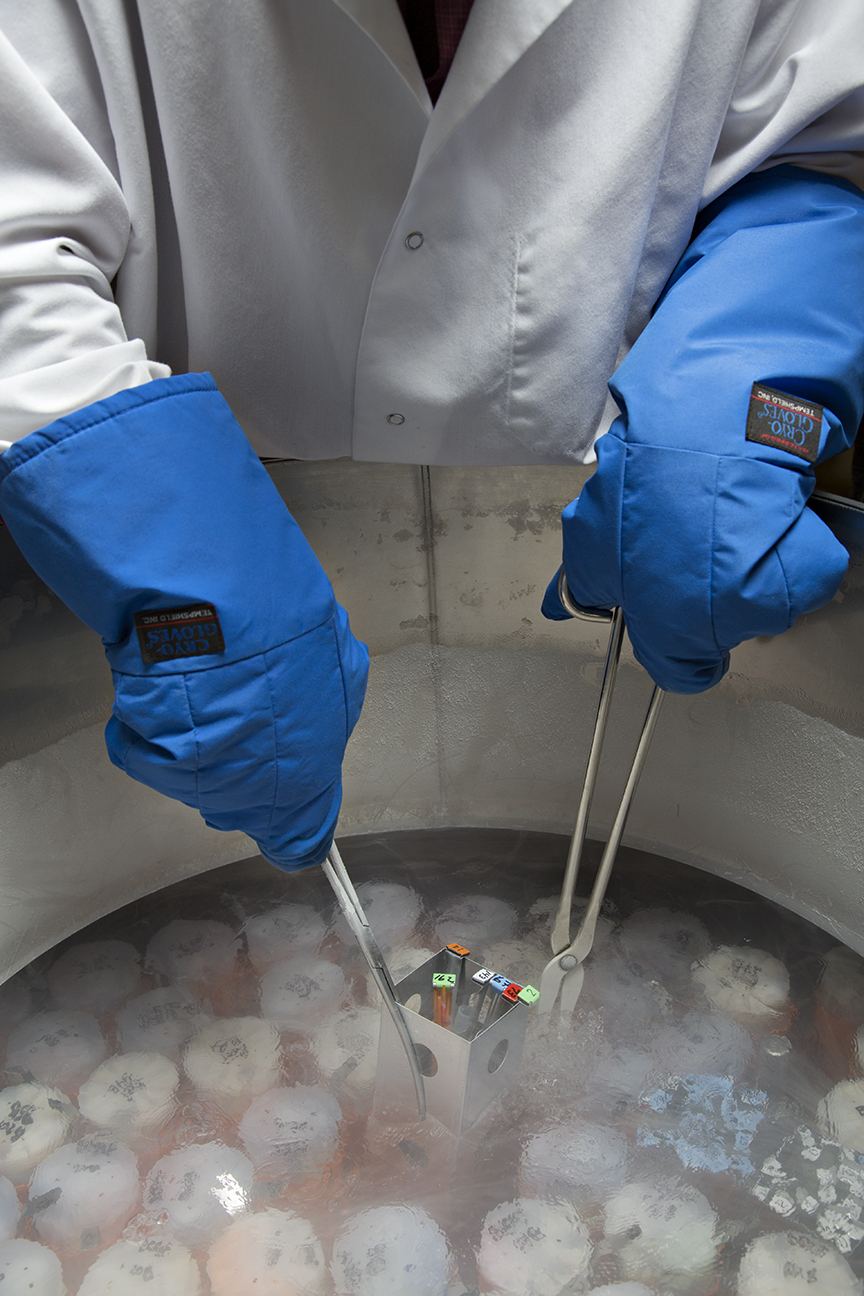#cryopreservation

Cryopreservation
Process to preserve biological matter
Cryopreservation or cryoconservation is a process where biological material - cells, tissues, or organs - are frozen to preserve the material for an extended period of time. At low temperatures any cell metabolism which might cause damage to the biological material in question is effectively stopped. Cryopreservation is an effective way to transport biological samples over long distances, store samples for prolonged periods of time, and create a bank of samples for users. Molecules, referred to as cryoprotective agents (CPAs), are added to reduce the osmotic shock and physical stresses cells undergo in the freezing process. Some cryoprotective agents used in research are inspired by plants and animals in nature that have unique cold tolerance to survive harsh winters, including: trees, wood frogs, and tardigrades.The first human corpse to be frozen with the hope of future resurrection was James Bedford's, a few hours after his cancer-caused death in 1967.[15] Bedford's is the only cryonics corpse frozen before 1974 still frozen today.
Sat 24th
Provided by Wikipedia
This keyword could refer to multiple things. Here are some suggestions: